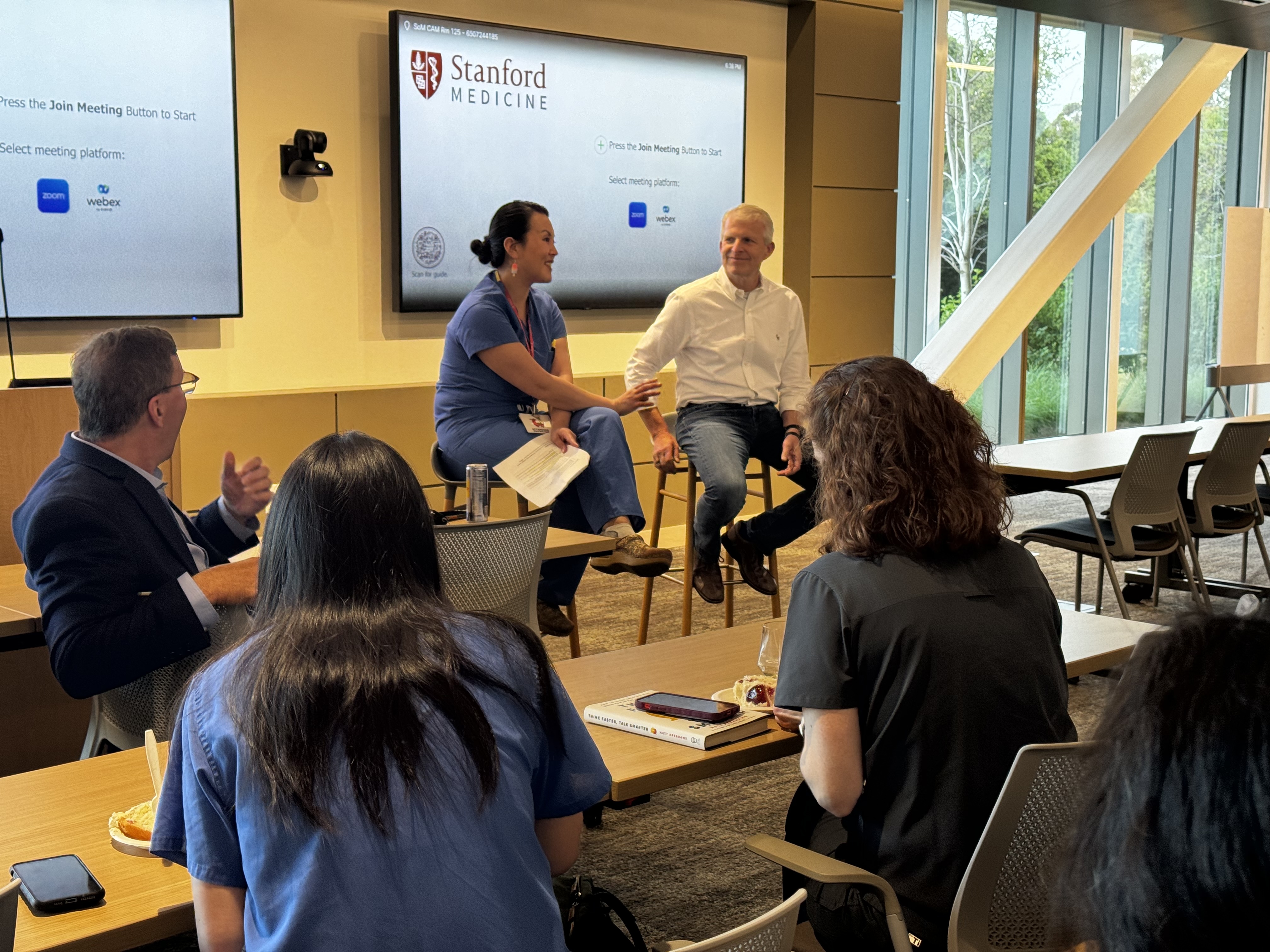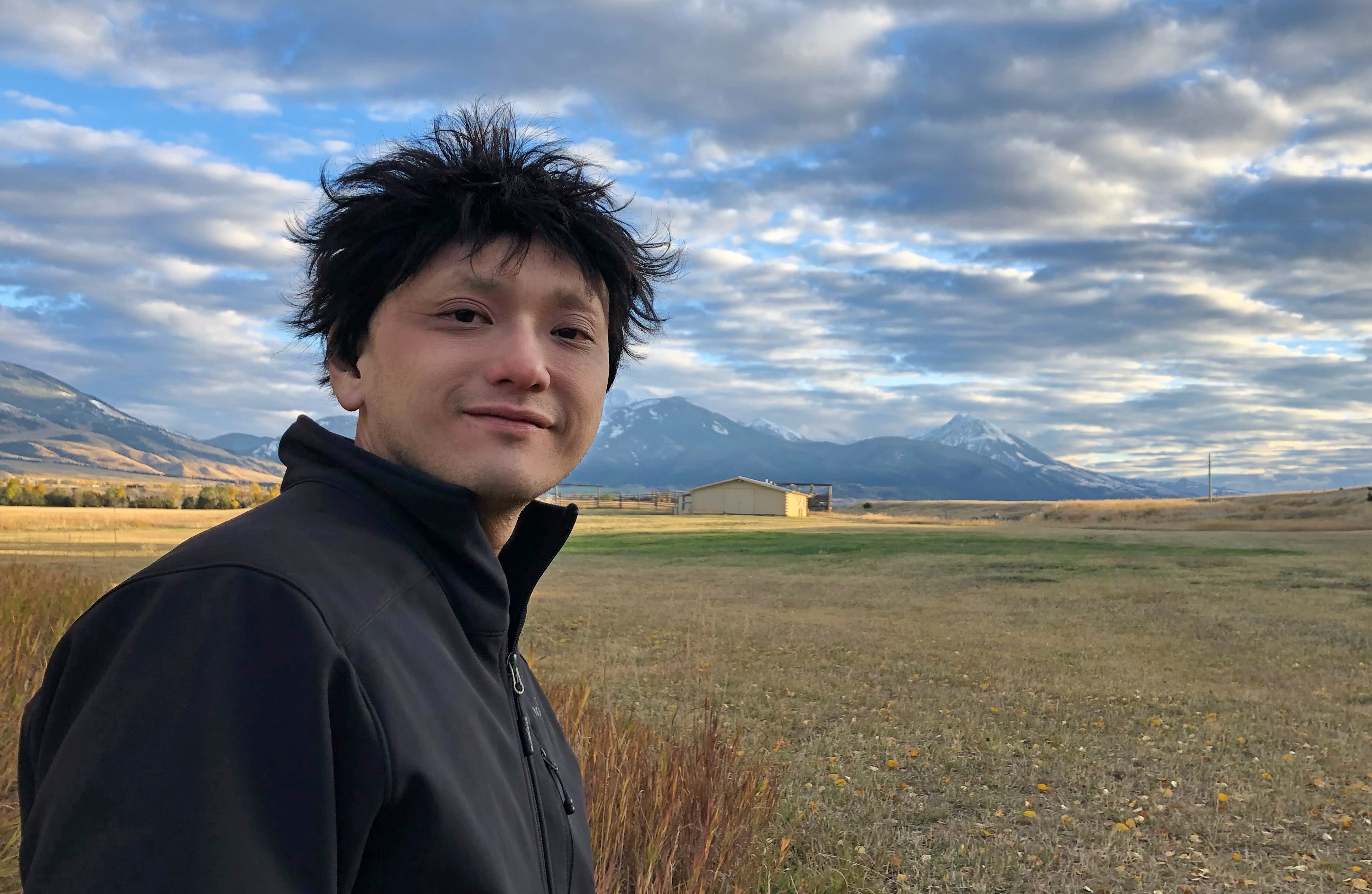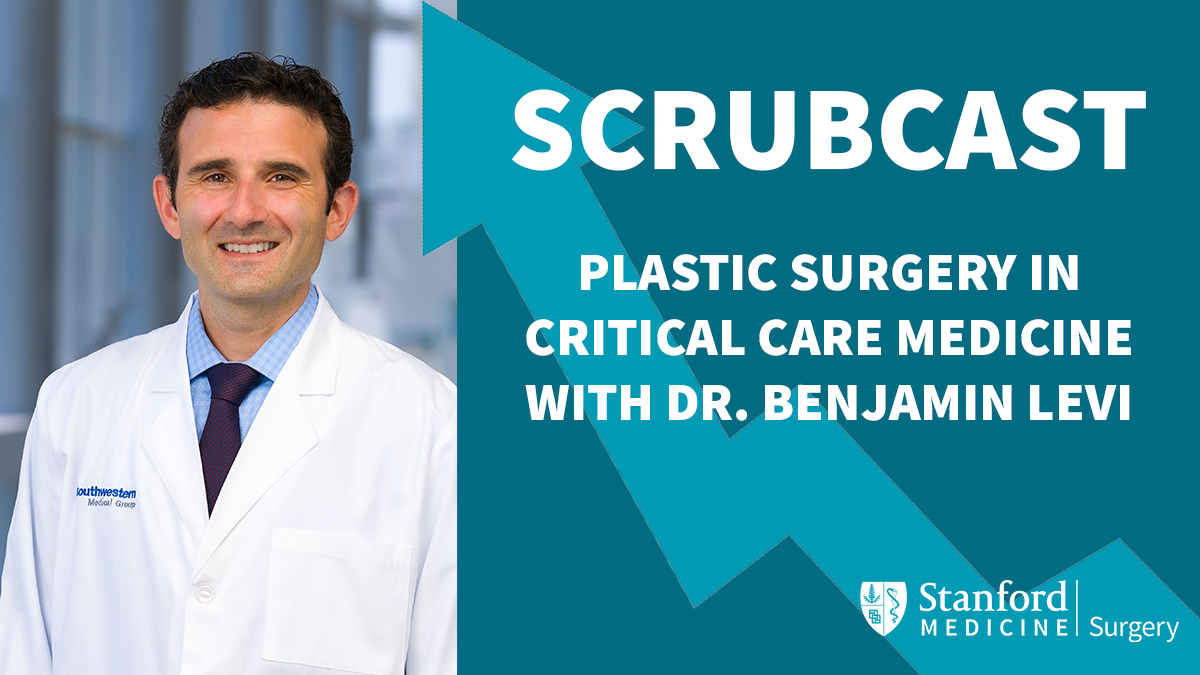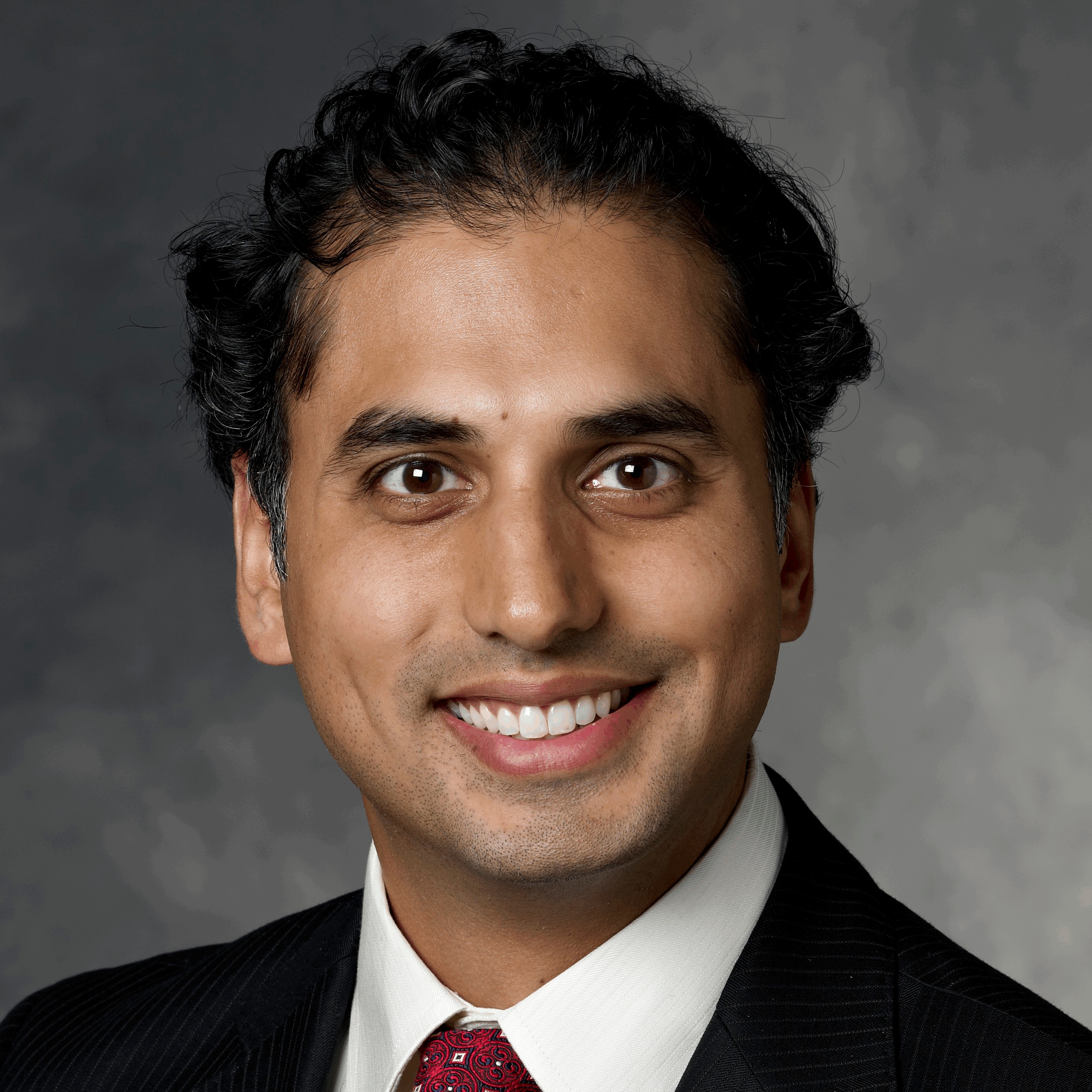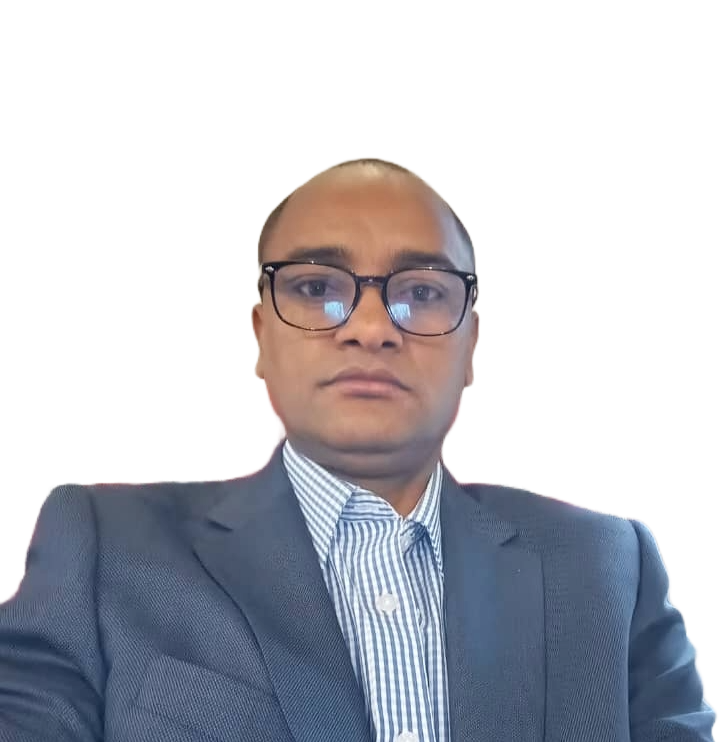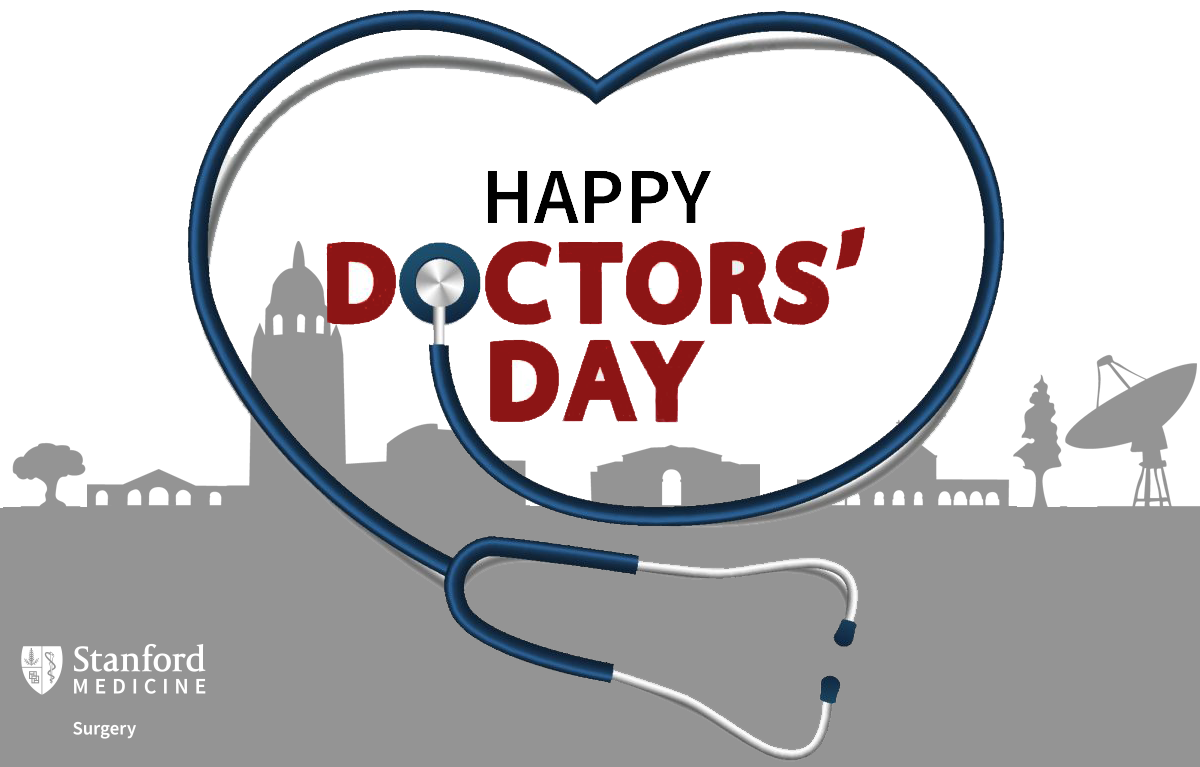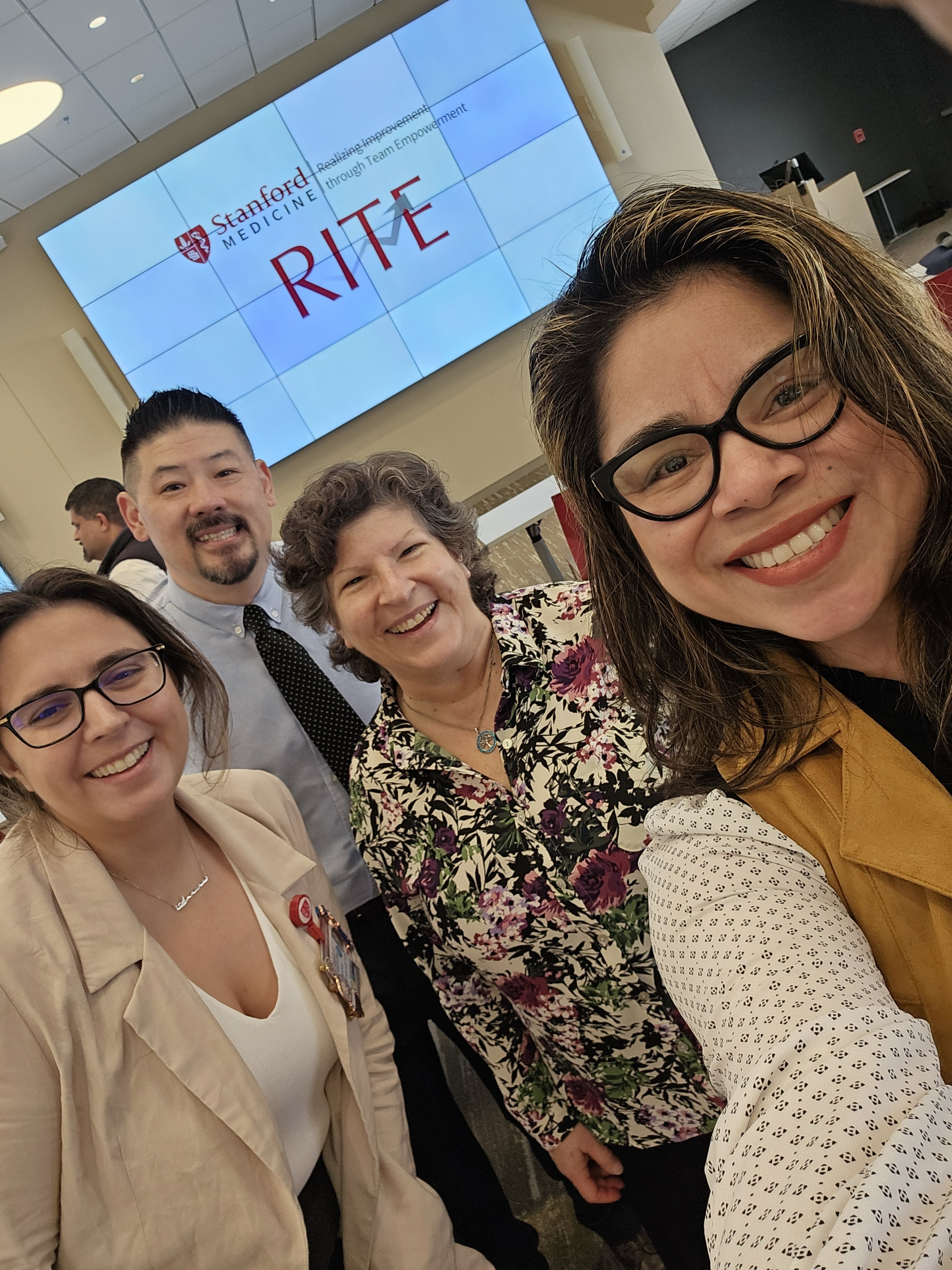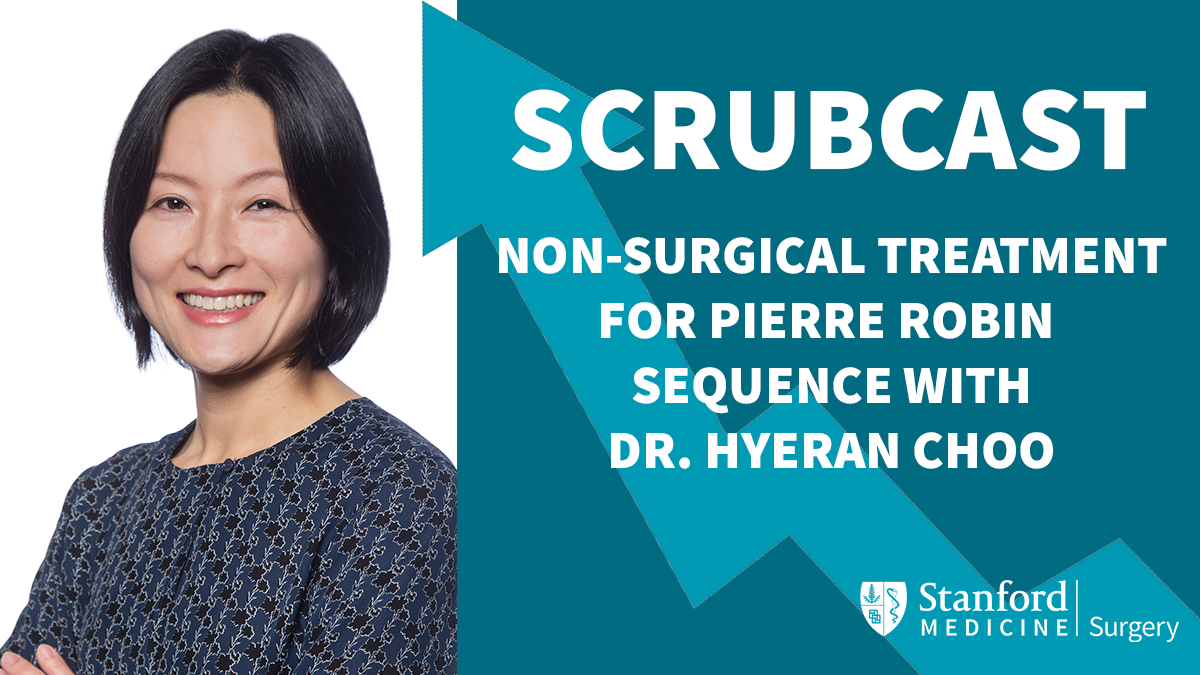Vascular Celebrates New Biobank with Baszucki Research Day
September 20, 2023
Stanford’s Division of Vascular Surgery celebrated the opening of its new Baszucki Biobank with a research symposium.
“The generosity of the Baszucki family and their sincere interest in supporting research and patient care inspires us all,” said Division Chair Dr. Jason Lee. “Building the vascular surgery BioBank is just the beginning of a long-term project to better study prognosis, prevention, and precision care for vascular diseases.”
The Baszucki Biobank had its soft opening about a year ago. According to Lab Manager Dipti Tripathi, they have collected and catalogued more than 140 specimens so far.
Members of the Baszucki Family tour the Biobank with Dr. Nazish Sayed.
Stanford Vascular Surgeons Drs. Derek Klarin, Nazish Sayed, and Jason Lee with members of the Baszucki Family and Visiting Professor Dr. Scott Damrauer in the Baszucki Biobank.
“We have purchased a -80-degree refrigerator for storing the blood and tissue samples and a 10X machine for doing genomics studies on the samples as well as many chemicals and reagents for the Biobank,” said Tripathi.
By collecting the tissue proactively, the team hopes to expedite future research to better understand of the causes of various vascular diseases.
“The inaugural Baszucki Research Day and Visiting Professorship cements the collaboration between the Baszucki family and the Department of Surgery,” said Lee.
Vascular Surgery faculty and trainees along with members of the Baszucki Family and Visiting Professor Dr. Scott Damrauer gather for the research symposium.
Vascular Surgery Trainees and Faculty with Visiting Professor Dr. Scott Damrauer
The Baszucki Research Day began early Monday, September 18th with a lecture from visiting professor Dr. Scott Damrauer.
“Scott Damrauer, MD embodies translational research in his interest in caring for patients with aneurysm disease, and we hope to learn a lot from the exchange!” said Lee.
Damrauer is an associate professor of surgery and genetics at the University of Pennsylvania. His research focuses on understanding the genetics of heart and vascular disease at the population scale. Following his talk, “All Aortic Aneurysms Are Not Equal: Lessons from the Genetics of Thoracic and Abdominal Aortic Aneurysms,” the audience heard from members of Stanford’s vascular and cardiovascular community.
“Having our experienced faculty, post-doctoral scholars, and up and coming trainees present their research to our community will hopefully inspire future collaborations and discoveries in vascular surgery and cardiovascular health,” said Lee.
The event officially closed on Tuesday morning at Department Grand Rounds where Dramrauer presented “Precision Medicine and the Surgeon: Where are we going and are we there yet?”
Media Contact
Bio
About Stanford Surgery
The Stanford University Department of Surgery is dedicated to inventing the future of surgical care through:
• pioneering cutting-edge research,
• developing the next generation of leaders, and
• healing through incomparable surgical skills and compassion.
To learn more, please visit surgery.stanford.edu
The Latest
- Surgery
Faculty PD Team Hosts First Networking Event
Drs. Pete Lorenz and Stephanie Chao, the vice chair and associate vice chair of professional development at Stanford Surgery, hosted a networking event with special guest Matt Abrahams.
- News Center
Chuck Chan, stem cell researcher who discovered how to regrow cartilage, dies at 48
The Stanford Medicine researcher was known for his groundbreaking work and his generous spirit as a mentor and colleague.
- Surgery
The Role of Plastic Surgery in Critical Care Medicine with Dr. Benjamin Levi
This episode of Scrubcast features Dr. Benjamin Levi, Chief of Burn, Trauma, Acute, and Critical Care Surgery at UT Southwestern and our honored guest at the 2024 Emile F. Holman Lecture.
- Surgery
Dr. Khosla Promoted to Professor
Dr. Rohit Khosla has been promoted to the rank of Clinical Professor in Surgery. The promotion is effective May 1, 2024.
- Global Health
Meet Dr. Derbew Fikadu Berhe, University of Global Health Equity researcher, educator, and pharmacologist - Global Health
Dr. Berhe will be at Stanford April 23-27 for a mixed methods research training and hopes to connect with colleagues in global health research, pharmacology, and noncommunicable diseases. His trip is sponsored by Stanford Surgery's Office of Global Engagement.
- Surgery
Surgery Expands National Doctor Day to a Month-long Celebration
Although National Doctor’s Day officially took place on March 30, Stanford Surgery celebrated department faculty all month-long with a series of events.
- Healthier, Happy Lives Blog
How a Social Media Post Led a Teen to Find a ‘Kidney Buddy’ for Life
Jaxon was diagnosed with nephronophthisis, a genetic disorder of the kidneys. Children who have this disease need a kidney transplant by the time they’re teenagers, as it eventually leads to kidney failure.
- Healthier, Happy Lives Blog
New Liver Gives a Toddler a Renewed Chance at Life
“Ocean was in dire need of a liver transplant,” says Carlos Esquivel, MD, pediatric transplant surgeon. “He was very ill and running out of time to wait for a compatible pediatric donor. We rarely get a pediatric donor. We had an offer for him from an adult donor that was his only chance for survival. We were able to use a small segment of the donated liver to save his life.”
- Surgery
Team Reduces Reimbursement Rejections by A Third
A team comprised of Linda Thomas, Co-Lead Carmen LoCascio as well as Robin Cohen, Amos Lam, Kevin Lee, Ana Mezynski, and Jackie Stahl participated in SHC's RITE (Realizing Improvement through Team Empowerment) Program and successfully reduced reimbursement rejections from 25 to 17%.
- Surgery
Non-Surgical Treatment for Pierre Robin Sequence with Dr. HyeRan Choo
In this episode of Scrubcast, host Rachel Baker interviews Dr. HyeRan Choo, a clinical associate professor in the Division of Plastic and Reconstructive Surgery. Dr. Choo is doing innovative work treating Pierre Robin Sequence—a rare congenital condition—using a non-surgical method.
